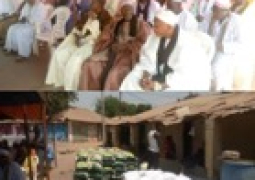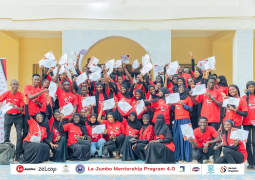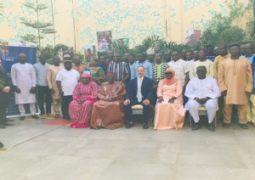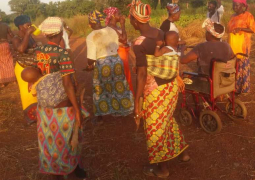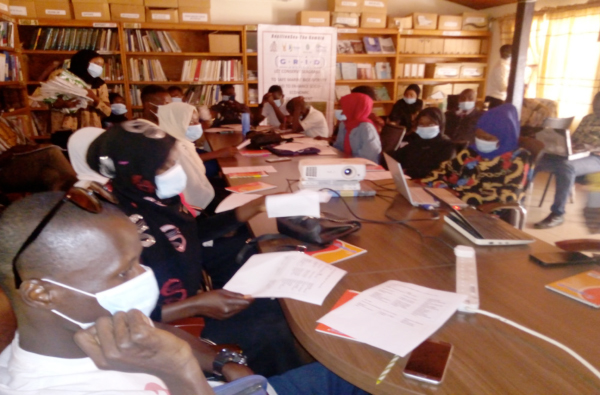
Momodou Lamin Gassama was speaking yesterday at the opening of two-day training for university students. The training was held at the DPWM conference hall in Abuko.
The Gambia including six other African countries are currently benefiting from the Resilience Sea Project. The sub-regional project is being funded by MAVA and to be implemented by the DPWM, Wetlands Internationals and G.R.I.D Arendal.
“We want to create awareness about the significant of sea grasses and why this is a very important national asset that we should all defend with everything possible. Several countries in West Africa don’t have seagrasses. The Gambia has more seagrasses than many countries in the West African sub-region. Therefore, it’s important that we jealously guard this seagrasses as they are crucial and are mostly found in unique marine environment,” he said.
Seagrasses, he went on, are food sources and habitats for many organisms, including fish but also endangered species such as seahorses, turtles and sea cows.
“Seagrasses also help protect our coastlines from storms and raising tides because their leaves take energy out of the waves hitting the coast, and their roots act as an anchor in the underwater sand.”
He added: “Sea grasses play a very important role in flood stabilization. One of the reasons why we have turtles in country is as a result of sea grasses. Right now there is competition between wildlife and human beings. I know you all know that the population around this area is rapidly exploding. In fact, maybe in the next 20 to 30 years Banjul may submerge or in the next 50 years,” he disclosed
“Banjul, is one of the most six vulnerable cities in West Africa. Maybe in the next 20 to 40 years Banjul maybe disappeared when there is no serious mitigation to address climate change concern around this area.”
“Decades ago coastal villages were not over populated like recently. The demographic is changing rapidly and the population of the country was very small by then. We were far less than a million, but in the last 20 years it has just rapidly exploded.”
Our population ambition, he went on, doesn’t match with planning.
“The amount of land in the country is just over 11, 000 kilometres square and it remain as it is. It’s never going to be increased. So, how do we deal with that? Wildlife animals are here and they are under constant threats because their population is increasing naturally because the habitants are striking. When you go around Senegambia area especially in Kololi and Bijilo, monkeys are invading everywhere else because their areas are been invading by human beings. This is a problem,” he noted.
“We need to educate the masses and informed them on the importance of sea grasses and why we should sustainable utilise them. Protecting the environment is a “Jihad” that we should all aspire to do. This is the legacy that should define our lives than the amount of money that we kept at the Bank. So, it’s important that whatever we learnt from this training, we share it with our colleagues.”
“In fact, as university students, you are the agent of change. I am quite sure that when you take the lead, we will achieve our objectives. Therefore, it’s important that we put our hand together because the country belongs to all of us.”


